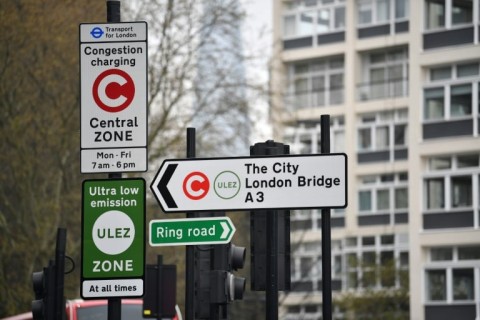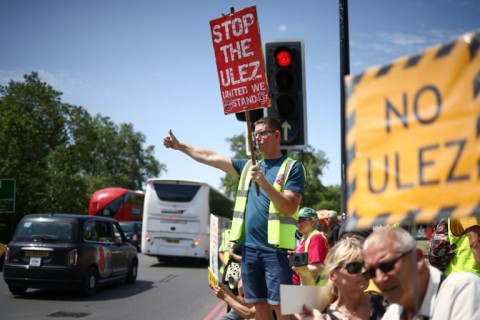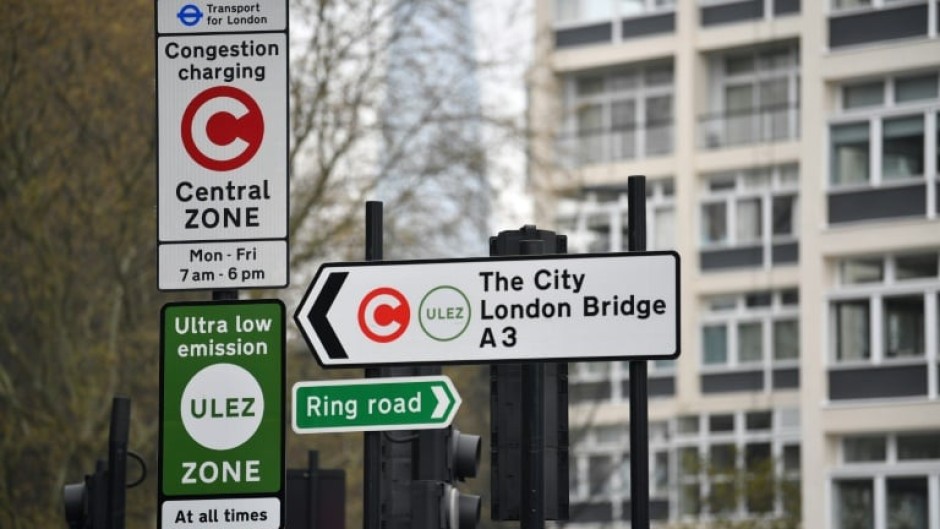
LONDON - A UK court on Tuesday will consider contentious plans to extend a scheme obliging the most polluting vehicles to pay for using London's roads, as opponents engage in protests -- and even sabotage.
The High Court case comes fewer than two months before London Mayor Sadiq Khan's expansion of the Ultra-Low Emission Zone (ULEZ) is set to take effect.
The scheme -- first introduced in 2019 and separate from the city's two-decades-old congestion charge -- requires more polluting vehicles to pay a £12.50 ($16) toll on days they are driven within inner London.
Its extension to all of Greater London from August 29 has prompted a fierce backlash from many living in and around the newly encompassed areas, who face fines of up to £160 for each day they fail to pay.
Several outer London local authorities and neighbouring Surrey County Council are lodging a court challenge to the way Khan decided on the expansion.
The Labour mayor, re-elected to a second term in 2021, ordered the move in November despite a public consultation suggesting most Londoners oppose it.
Khan insists the bigger ULEZ will help improve the city's "toxic air pollution", which causes thousands of annual deaths and life-changing illnesses.

London's ULEZ mirrors similar low-emission zones to improve air quality in more than 200 cities in 10 countries across Europe.
Khan's office insists it has improved air quality by cutting harmful emissions.
Petrol cars registered pre-2006 and diesel vehicles first registered before September 2015 are unlikely to meet the minimum emissions standards required.
Transport for London (TfL) -- a local government body -- estimates that fewer than 200,000 such vehicles currently enter the new zone, based on existing ULEZ camera analysis.

